Sheetala Ashtami, also known as Basoda (बसोडा) is a Hindu festival celebrated on the eighth day after Holi, which usually falls in the Hindu month of Chaitra (March-April). This festival is dedicated to Goddess Sheetala, who is worshipped as the goddess of health, hygiene, and cleanliness.
On this day, people worship the goddess Sheetala by offering her food, flowers, and incense sticks. They also perform puja, a traditional Hindu prayer ritual, in which they chant mantras and seek blessings from the goddess for good health and hygiene. In some parts of India, people observe a fast on this day and break it only after the puja is completed.
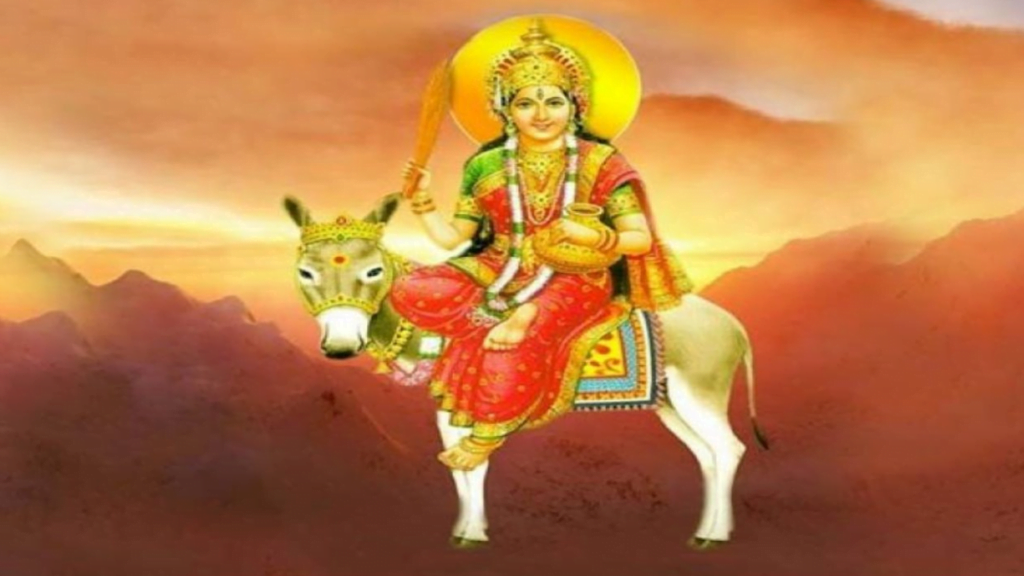
Sheetala Ashtami is also a day for cleaning and purifying homes and surroundings, as it is believed that the goddess Sheetala bestows her blessings upon those who keep their surroundings clean and hygienic. People also prepare and consume special dishes like pakoras, dahi chawal, and gujiyas on this day.
In some regions of India, this festival is also associated with the agricultural season, and farmers offer prayers to the goddess Sheetala for a good harvest. Overall, Sheetala Ashtami is a festival that celebrates health, cleanliness, and prosperity, and is an important part of the rich cultural heritage of India.
Sheetala Ashtami is more popular in North Indian states like Gujarat, Rajasthan and Uttar Pradesh.
Sheetala Ashtami Story
The origin story of Sheetala Ashtami or Basoda is associated with the goddess Sheetala. According to Hindu mythology, there was once a demon named Jwarasur, who was causing widespread illness and disease among the people. The gods and goddesses were unable to defeat him, and the situation became critical.
At this time, the goddess Sheetala appeared and agreed to help. She took the form of a beautiful woman and set out to defeat the demon. She entered his palace and started spreading her infectious diseases like smallpox and chickenpox. Jwarasur, unable to bear the torment, surrendered and pleaded with her to stop.
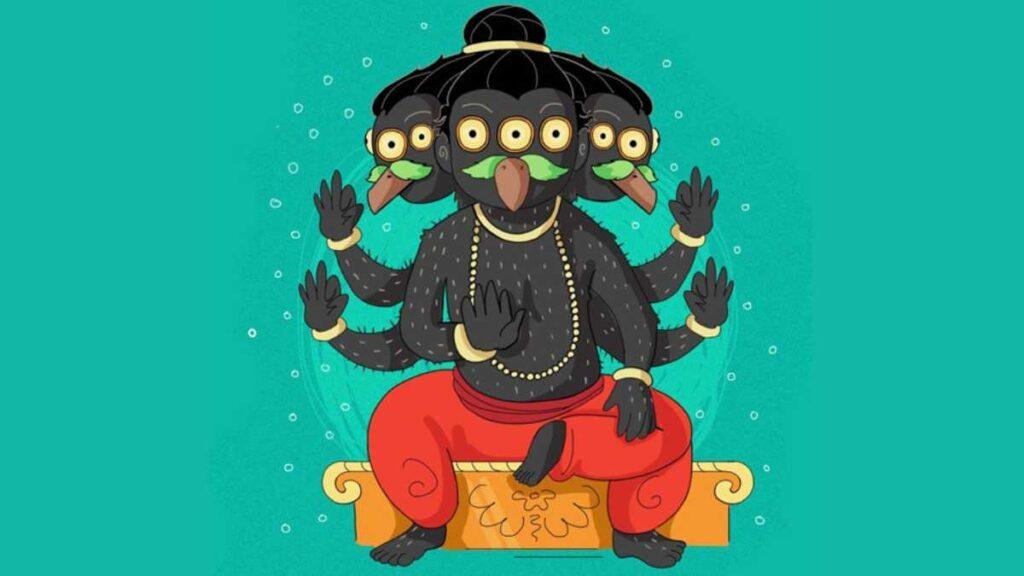
Sheetala agreed to spare his life on the condition that he would not harm anyone anymore. Jwarasur promised to do so, and the goddess Sheetala left. The people were cured of their illnesses, and they began to worship the goddess as the goddess of health and hygiene.
Since then, Sheetala Ashtami has been celebrated to honor the goddess and to seek her blessings for good health and hygiene. People offer prayers and perform puja to seek her blessings and protection from diseases.
The story also emphasizes the importance of cleanliness and hygiene, which is why people clean their homes and surroundings on this day. It is believed that by keeping their surroundings clean, people can ward off diseases and attract good health and prosperity.
Characteristics of Goddess Sheetala Mata
In Hinduism, the Goddess Sheetla is depicted with several objects that symbolize her power and abilities. Here are the physical characteristics of some of these objects:
- Winnowing fan: Goddess Sheetla is often depicted holding a winnowing fan or “chaur” in one of her hands. The winnowing fan is a traditional Indian tool used for separating grain from chaff. In the context of Sheetla Mata, the winnowing fan represents the goddess’s ability to purify and separate disease from the body and mind of her devotees.
- Broom: Another object often associated with Goddess Sheetla is the broom or “jhadu.” The broom represents the goddess’s role as a caretaker of hygiene and cleanliness. It symbolizes her ability to sweep away impurities and keep her surroundings clean and pure.
- Pot: The pot or “ghada” is another object associated with Goddess Sheetla. The pot represents purity and is often used in Hindu rituals to store holy water or other sacred substances. In the context of Sheetla Mata, the pot symbolizes her power to purify and heal her devotees.
- Neem Leaves: Neem leaves are believed to have medicinal properties and are often used in traditional Indian medicine to treat various ailments. In the context of Goddess Sheetla, neem leaves are a symbol of her healing powers and her ability to cure and prevent disease.
- Ass: Goddess Sheetla is often depicted riding on an ass or donkey. The donkey is a symbol of humility and represents the goddess’s willingness to help even the lowliest of beings. It also represents her ability to carry the burden of disease and illness away from her devotees.
Sheetala Ashtami Date, Time and Mahurat
Sheetala Ashtami on Tuesday, April 2,2024
Sheetala Ashtami Puja Muhurat Start – April 01 | 10:10 PM in (United States)
Sheetala Ashtami Puja Muhurat End –April 02 | 10:36 AM in (United States)
Duration– 12 hours 27 Mins
Sheetala Saptami on Monday, April 1,2024
Ashtami Tithi Begins- April 01 | 11:39 AM in (United States)
Ashtami Tithi Ends– April 02 | 10:38 AM in (United States)
Sheetala Ashtami Vrat Rules
- Devotees observing a vrat must maintain celibacy.
- The fire must not be lit in the kitchen, especially to cook on the day of vrat.
- Do not consume freshly cooked food on puja day.
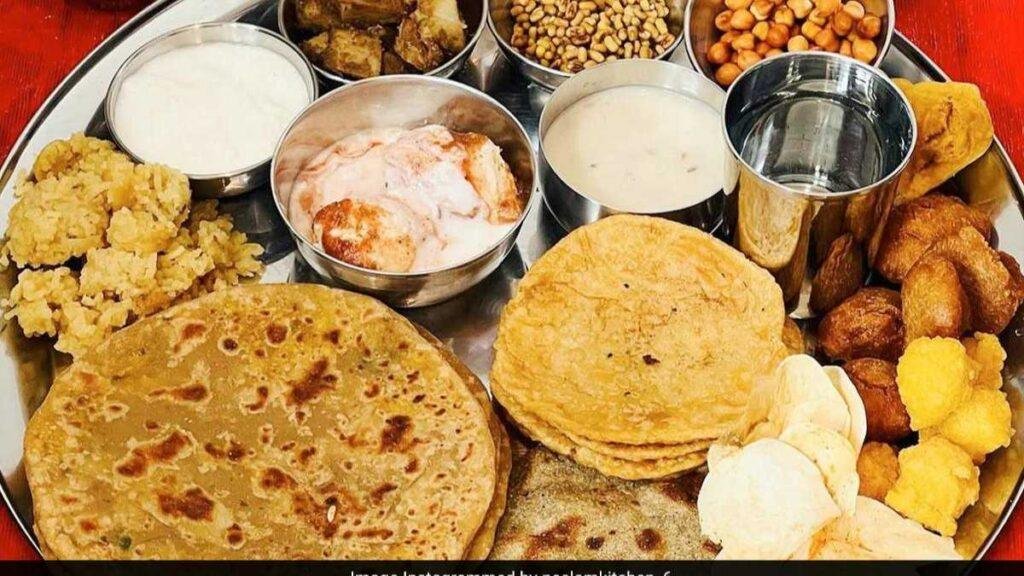
Sheetala Ashtami or Basoda Puja Vidhi
The puja vidhi may vary from region to region, but here’s one of the simplest ways of performing the rituals:
- Take a bath and visit the temple with all the offerings/Bhog (curd, rice, halwa, puri, a kheer or rabdi etc.) to the Goddess. You can also do the puja at home. Besides the bhog, you must also offer water in a Kalash, haldi, kumkum, akshat, flowers, sindoor, Mehendi, kajal, red chunri, kalava, banana, coconut etc.
- Light a lamp made with wheat dough and use mustard oil/ghee to ignite the lamp.
- Seek the blessings of Goddess Sheetala while offering these items in this order – Haldi, Kumkum, akshat, kalava, chunri, kajal, Mehendi, flowers, banana, coconut etc.
- Then offer some water from the Kalash and the bhog.
- Pray to the Goddess and seek her blessings for good health.
- Conclude the puja by performing the aarti.
- Then sprinkle some water from the Kalash on yourself and other family members. You may also use it to cleanse your home.
According to Basoda customs families don’t lit fire for cooking. Hence most families cook one day before and consume stale food on Sheetala Ashtami day. It is believed that Goddess Sheetala controls smallpox, chickenpox, measles, etc. and people worship her to ward off any outbreak of those diseases.
In Gujarat, the similar ritual as Basoda is observed just a day before Krishna Janmashtami and is known as Shitala Satam. Shitala Satam is also dedicated to Goddess Sheetala and no fresh food is cooked on the day of Sheetala Satam.

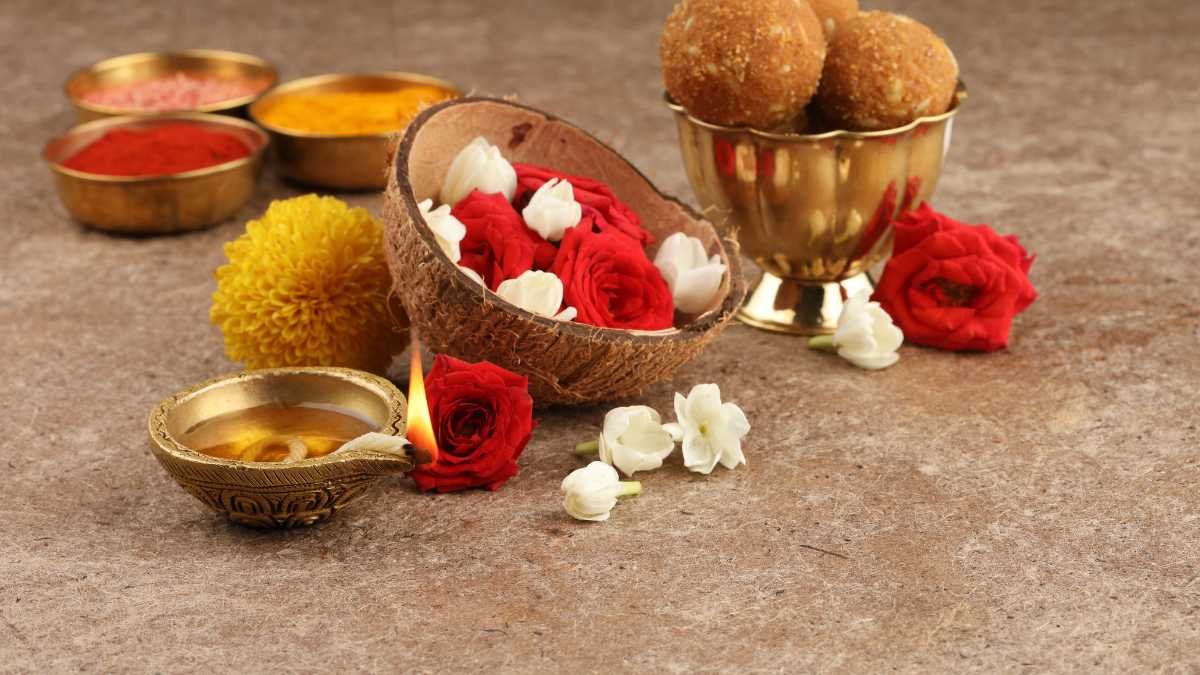












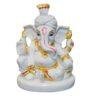

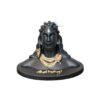


Add comment